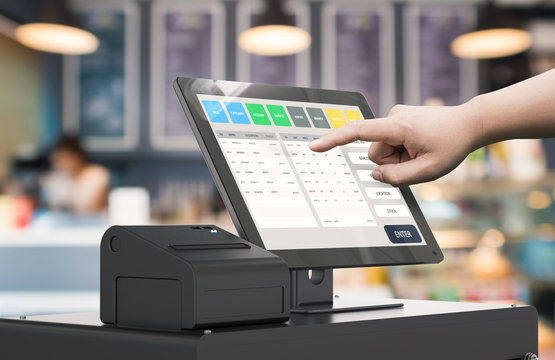


A smooth checkout process improves customer experiences. Learn what a point-of-sale platform consists of and why you need one.

A point-of-sale (POS) system streamlines the checkout experience, allowing your small business to process payments, record customer loyalty points, and update inventory. POS vendors offer flexible solutions for brick-and-mortar and online companies. Although many industries use POS software and hardware, Grand View Research reported that retailers "held the largest share of more than 34.35% of the overall revenue."
But how does POS software and hardware differ from a credit card terminal, and do you need one? We'll cover what a POS system is from components to pricing, how to choose one, and examples of the top vendors in the POS sector.
An electronic POS system processes payment transactions and logs purchases for accounting records. It replaces traditional cash registers or manual calculations at physical locations. E-commerce businesses also use POS platforms to facilitate and track online sales.
Free consultation for this Service